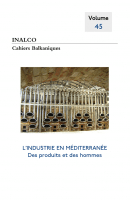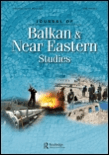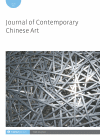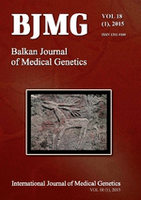
Cahiers Balkaniques
metrics 2024
Exploring the Rich Tapestry of Balkan Heritage
Introduction
Cahiers Balkaniques is a distinguished academic journal dedicated to the study of Balkan languages, cultures, and civilizations, published by the Institut National des Langues et Civilisations Orientales (INALCO). Since its inception in 2004, it has embraced an Open Access model, facilitating unrestricted access to its research articles, making it a vital resource for scholars and professionals in the fields of linguistics, cultural studies, and regional history. With ISSN 0290-7402 and E-ISSN 2261-4184, Cahiers Balkaniques serves as a crucial platform for disseminating research that explores the rich and diverse heritage of the Balkan region. Researchers, students, and professionals alike benefit from its commitment to fostering understanding and dialogue around the intricate social, political, and linguistic dynamics of the Balkans, solidifying its importance within the academic community.
Metrics 2024
 -
- 0.40
0.40 0.20
0.20 -
-Metrics History
Rank 2024
JCI (Web Of Science)
Quartile History
Similar Journals

Balkan Journal of Philosophy
Exploring the Depths of Balkan ThoughtBalkan Journal of Philosophy, published by ACAD PUBL HOUSE, stands as a significant contribution to the field of philosophy, particularly within the Balkan region. With an ISSN of 1313-888X and an E-ISSN of 2367-5438, this journal aims to advance philosophical discourse and scholarship from 2017 to 2024, making it a vital platform for emerging ideas and scholarly debates. Despite its emerging status, it holds a respectable Q3 quartile ranking and is positioned in the 22nd percentile for Arts and Humanities in Scopus, reflecting its growing impact in the academic community. Researchers and students alike can access vital philosophical studies that explore diverse themes and perspectives unique to the region. The journal not only fosters a broader understanding of philosophical thought but also encourages cross-cultural dialogues, making it an essential resource for anyone invested in philosophical inquiry.

Kunstiteaduslikke Uurimusi
Innovating Perspectives on Artistic PracticesKunstiteaduslikke Uurimusi is a notable academic journal published by the Estonian Society Art Historians, dedicated to the exploration and analysis of art and cultural studies within the vibrant context of Estonia and beyond. With an ISSN of 1406-2860, this journal offers a platform for researchers, professionals, and students to disseminate their findings and engage in meaningful discourse in the fields of Arts and Humanities and Cultural Studies. Although it occupies a fourth quartile ranking in both fields, the journal's commitment to fostering scholarly dialogue is evident through its open access provision, facilitating the sharing of knowledge across disciplines. Covering a broad spectrum of art historical themes since its inception, Kunstiteaduslikke Uurimusi aims to contribute to the understanding of artistic practices and cultural phenomena, making it an essential resource for those interested in the intersections of art, culture, and society. The journal continues to evolve, with coverage extending from 2011 to 2024, reflecting the dynamic nature of the arts and cultural sectors.

Laboratorio de Arte
Uncovering New Perspectives in Cultural StudiesLaboratorio de Arte is an esteemed journal published by UNIV SEVILLA, EDITORIAL, specializing in the interdisciplinary fields of Arts and Humanities, Conservation, Museology, and Visual Arts. With an impactful presence in research since its inception, the journal has been open access since 2006, promoting the free dissemination of knowledge and fostering academic dialogue among scholars, professionals, and students. The journal adheres to rigorous academic standards, reflected in its categorization within the Q2 and Q3 quartiles across various disciplines, and its commendable rankings in Scopus make it an essential resource for those engaged in the arts. The h-index for this journal showcases its contribution to the field, further solidifying its importance in contemporary research. As it continues to evolve through 2023 and beyond, Laboratorio de Arte serves as a vital platform for innovative thoughts and practices within the vibrant landscape of artistic and cultural studies.

Studia Slavica et Balcanica Petropolitana
Illuminating the Rich Tapestry of Slavic and Balkan CulturesStudia Slavica et Balcanica Petropolitana is an esteemed open-access journal, published by the Department of History at St. Petersburg State University, focusing on interdisciplinary research within the fields of Slavic and Balkan studies. Since its inception in 2007, the journal has made significant contributions to the academic discourse surrounding historical and contemporary issues pertinent to these regions, thus achieving a strong reputation among scholars. As of 2023, it is categorized in the Q2 quartile for History, ranked 873 out of 1760 in the arts and humanities segment, highlighting its impactful scholarly contributions. The journal operates out of Russia, with its editorial office located at Mendeleevskaya Liniya in St. Petersburg. Its accessible publishing model promotes widespread dissemination of knowledge, making it an invaluable resource for researchers, professionals, and students who aim to deepen their understanding of Slavic and Balkan societies from both historical and modern perspectives.

Journal of Balkan and Near Eastern Studies
Empowering Scholars with Open Access to Pivotal Research.Welcome to the Journal of Balkan and Near Eastern Studies, a premier academic publication dedicated to advancing scholarship in the complex and dynamic fields of history, political science, and international relations within the Balkans and Near Eastern regions. Published by Routledge Journals, Taylor & Francis Ltd, this journal boasts a robust Q1 status in History and Q2 in Political Science and International Relations for 2023, reflecting its significant impact on contemporary research. The journal, which has been in circulation since 2008, contributes valuable insights and analyses, making it an essential resource for scholars and practitioners aiming to deepen their understanding of these historically rich areas. Research featured in this peer-reviewed journal is recognized for its rigorous methodology and innovative perspectives, with high rankings in Scopus across relevant disciplines (Arts and Humanities History: Rank #120/1760, Percentile 93rd; Social Sciences Political Science and International Relations: Rank #274/706, Percentile 61st). As an Open Access title, the Journal of Balkan and Near Eastern Studies ensures that pivotal research is accessible to a global audience, fostering dialogue and collaboration among researchers, professionals, and students alike.

PACIFIC HISTORICAL REVIEW
Uncovering the Intricate Stories of the PacificPACIFIC HISTORICAL REVIEW, published by the University of California Press, serves as a pivotal academic journal in the field of History. With a robust ISSN of 0030-8684, this journal has been dedicated to examining the intricate narratives and themes of the Pacific region since its inception in 1967. Recognized for its scholarly contributions, it holds a commendable Q3 ranking in the History category for 2023 and is positioned in the 58th percentile among its peers in the Scopus database. The journal offers a platform for rigorous research and interdisciplinary dialogue, aiming to illuminate the diverse historical experiences and cultural complexities of the Pacific. While it does not provide open access, it remains an esteemed publication for researchers, professionals, and students seeking in-depth analyses and scholarly discourse in the rich tapestry of Pacific history.

Journal of Contemporary Chinese Art
Chronicling the Evolution of Contemporary Art PracticesThe Journal of Contemporary Chinese Art is a prestigious academic publication dedicated to advancing the discourse surrounding contemporary artworks and artistic practices in China. Published by INTELLECT LTD, this journal features insightful articles and research that catalyze discussions among scholars, practitioners, and students within the Visual Arts and Performing Arts fields. With an ISSN of 2051-7041 and an E-ISSN of 2051-705X, the journal operates without open access, yet remains a pivotal resource as reflected in its Q2 ranking in the 2023 category of Visual Arts and Performing Arts, positioning it within the 70th percentile on the Scopus Ranks. Covering a diverse range of topics from global influences on Chinese art to the socio-political dimensions of artistic expressions, the journal aims to foster a deeper understanding of contemporary cultural dynamics. Since its inception in 2019 and continuing through 2024, it has established itself as a critical platform for emerging voices and established experts alike, making it an essential read for anyone engaged in the study and appreciation of modern Chinese art.

Acta Geographica Slovenica-Geografski Zbornik
Unlocking insights into Slovenia’s geographical heritage.Acta Geographica Slovenica-Geografski Zbornik is a prominent academic journal published by the Geografski Institut Antona Melika ZRC SAZU, situated in Slovenia. This open-access journal, active since 2003, has made significant strides in the fields of cultural studies, geography, and earth sciences, earning impressive rankings in its respective categories—Q1 in Cultural Studies and Q3 in both Earth and Planetary Sciences and Geography, Planning and Development. With an impactful presence evidenced by its Scopus rankings, including being placed in the 90th percentile for Cultural Studies, Acta Geographica Slovenica serves as an essential platform for researchers, professionals, and students alike, facilitating accessible scholarly dialogue and contributing to the development of geographical and cultural knowledge. The journal is dedicated to advancing research that develops innovative perspectives on geographical phenomena, making it an invaluable resource within the academic community.

Balkan Journal of Medical Genetics
Advancing genetic knowledge for a healthier tomorrow.Balkan Journal of Medical Genetics is an esteemed scientific publication dedicated to advancing research in the field of medical genetics. Established in 2000 and published by SCIENDO, the journal has embraced an Open Access model since 2007, ensuring that vital findings are readily accessible to researchers, healthcare professionals, and students worldwide. With an ISSN of 1311-0160 and an E-ISSN of 2199-5761, this journal serves as a platform for innovative studies and clinical findings, although it currently ranks in the lower quartiles within its categories according to the 2023 Scopus rankings. The journal's geographical roots in Macedonia reflect the region's commitment to contributing to the global understanding of genetics. By publishing high-quality research, the Balkan Journal of Medical Genetics aims to foster collaboration and knowledge exchange among scientists and healthcare providers, ultimately enhancing patient care and genetic research practices.

Religion and the Arts
Unveiling the Rich Tapestry of Faith Through Artistic LensesReligion and the Arts is a distinguished scholarly journal published by BRILL, based in the Netherlands, with a dedicated focus on the interdisciplinary exploration of religion and its interplay with various artistic expressions from historical and contemporary perspectives. Established in 1996, this journal serves as a vital platform for researchers, professionals, and students interested in Cultural Studies, History, Religious Studies, and the Visual and Performing Arts. Despite its current classification in the Q4 category across multiple fields, it remains committed to advancing academic discourse and fostering innovative approaches to understanding the complex relationships between spirituality and artistic creation. With its ISSN 1079-9265 and E-ISSN 1568-5292, the journal invites submissions that contribute to enriching this dynamic field, ensuring that a diverse range of voices and perspectives are represented. Although not an Open Access publication, the journal’s content continues to be pivotal for scholarly engagement and is essential reading for those dedicated to the study of art's profound connections with religious traditions.